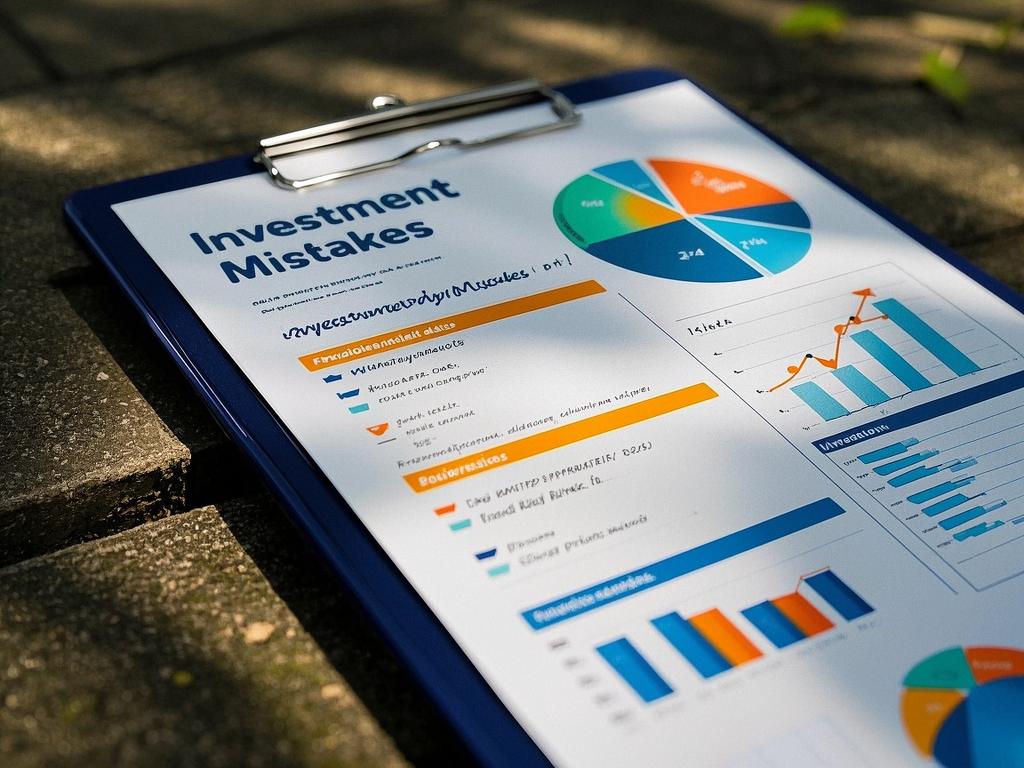
# Top 5 Investment Mistakes to Avoid at All Costs
In the wild world of investing, where fortunes are made and lost in the blink of an eye, avoiding common pitfalls is the name of the game. As an economist, I've seen my fair share of investors stumble into traps that could have been easily avoided. So, let's dive into the top 5 investment mistakes you should steer clear of like the plague.
## 1. Timing the Market: The Fool's Errand
One of the most persistent myths in investing is the ability to time the market. You know the drill: trying to buy at the absolute bottom and sell at the peak. But here's the cold, hard truth: even the most seasoned professionals struggle to get this right consistently.
Data shows that missing just a few of the best trading days in a given period can have a huge impact on your overall returns. For example, if you had invested $10,000 in the S&P 500 from 1980 to 2020 and missed the 10 best days, your returns would have been cut nearly in half! It's like trying to catch a falling knife; more often than not, you'll end up getting cut.
So, instead of chasing market highs and lows, embrace the power of dollar-cost averaging. Invest a fixed amount regularly, regardless of market conditions. This way, you'll avoid the stress of trying to time the market and benefit from the long-term growth of your investments.
## 2. Emotional Investing: Letting Fear and Greed Rule
Investing is not for the faint of heart. Fear and greed are two powerful emotions that can cloud your judgment and lead to costly mistakes. When the market tanks, fear can drive you to sell at the bottom, locking in your losses. And when it's soaring, greed can make you over-invest, setting yourself up for a fall.
Take, for instance, the dot-com bubble of the late 1990s. Investors were caught up in the hype of internet stocks, pouring money into companies with little or no earnings. When the bubble burst, countless investors lost their shirts. It was a classic case of greed getting the better of them.
To avoid emotional investing, develop a well-thought-out investment plan and stick to it. Don't let short-term market fluctuations sway your decisions. Remember, investing is a long-term game, and knee-jerk reactions rarely pay off.
## 3. Overdiversification: The Myth of Safety in Numbers
Diversification is a key strategy in investing, but there's such a thing as too much of a good thing. Overdiversifying can dilute your returns and make it difficult to keep track of your investments.
Think about it: if you spread your money across hundreds of different stocks, you're essentially betting on the entire market. While this may reduce your risk of losing everything, it also means you're likely to get average returns. And let's face it, average is not what we're aiming for when we invest.
Instead, focus on building a diversified portfolio with a mix of asset classes, such as stocks, bonds, and real estate. Aim for about 10 to 15 individual investments to achieve a good balance of risk and return. This way, you can still benefit from diversification without spreading yourself too thin.
## 4. Ignoring Fees: The Hidden Cost of Investing
Fees are the silent killers of investment returns. They may seem small on a per-transaction basis, but over time, they can add up and eat into your profits.
For example, let's say you invest $100,000 in a mutual fund with an annual expense ratio of 1%. After 30 years, assuming an average annual return of 8%, you would have paid over $100,000 in fees! That's a significant chunk of change that could have been working for you instead.
When choosing investments, pay close attention to the fees involved. Look for low-cost index funds or exchange-traded funds (ETFs) that track the market. These typically have lower expense ratios compared to actively managed funds. And don't be afraid to negotiate fees with your investment advisor; every little bit counts.
## 5. Chasing Hot Tips: The Gambler's Mentality
We've all been tempted by the promise of a hot stock tip or a get-rich-quick scheme. But here's the reality: most of these tips are nothing more than noise. They're often based on rumors, insider information, or just plain luck.
Investing based on hot tips is like playing roulette; you're relying on chance rather than sound financial analysis. It's a dangerous game that can quickly lead to financial ruin.
Instead, do your own research and invest in companies with strong fundamentals. Look for businesses with a proven track record, solid management teams, and a competitive edge in the market. This way, you can make informed investment decisions based on facts, not hype.
In conclusion, avoiding these top 5 investment mistakes is crucial for achieving long-term financial success. By staying disciplined, avoiding emotional pitfalls, diversifying wisely, being mindful of fees, and doing your own research, you'll be well on your way to building a portfolio that can weather the storms of the market and help you reach your financial goals. So, the next time you're tempted to make a risky investment move, think twice and remember: there are no shortcuts to wealth. Stay smart, stay informed, and happy investing!

